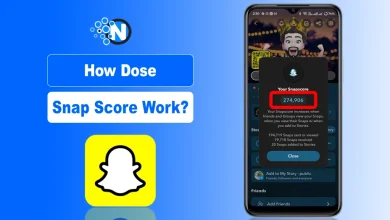Why “How Long Do Idiots Live” Went Viral: The Psychology Behind It

Every few months, the internet gifts us a strange, hilarious, and completely unexpected trend; one that spreads faster than any logical explanation can catch up. One such trend is the wildly popular search: “How Long Do Idiots Live?”
I was there when people first started laughing at this silly question and its technically absurd answer. Ironically, the meme left countless users scratching their heads because of its emotionally bizarre nature and the way it spread across different social media platforms.
Now, in 2025, I decided it’s time to break down the facts and bust the myths behind this meme, especially because it’s becoming even more popular than before. So why not dissect this strangely emotional internet joke and explore how it turned into a piece of modern digital folklore?
Key Takeaways
1. How Long Do Idiots Live is a meme.
2. It went viral in 2022.
3. There is no scientific truth behind idiots’ lifespans.
4. Some other search results joined the trend and became a meme.
What is the “How Long Do Idiots Live” Meme?
“How Long Do Idiots Live?” is a viral TikTok meme of early 2022 that began due to a Google search result claiming its answer was “12-15.”

As per Technology ORG, “This meme first went viral in 2021, and got back in 2022.” However, my observation is stuck to 2022 as I’ve written before. This meme wasn’t a scientific fact, but it was a joke format used for roasting friends, siblings, and sometimes exes while sarcastically telling them, “You are a fool.”
Typically, people would:
- Search “How long do idiots live?”
- Find the joke answer (often “12–15 years,” purely fictional)
- Share the result as a playful insult or emotional joke
- Pair it with heartfelt or dramatic background music
It was humor mixed with fake facts, and it took off instantly.
Why Did It Become So Popular? Psychology Behind the Trend
The meme went viral at the speed of light due to the specific nature of human psychology:
1. Curiosity Drives Viral Searches
Humans are naturally curious, especially when a phrase is:
- Strange
- Controversial
- Emotionally charged
- Or sounds like a forbidden question
The moment someone sees a TikTok video referencing the phrase, they can’t resist typing it into Google just to see what’s going on.
Curiosity → Search → Share → Repeat.
2. It Uses Shock Value (But in a Harmless Way)
The phrase looks harsh at first glance, which triggers an emotional reaction:
- “Why would anyone search that?”
- “What does this even mean?”
That split-second shock grabs attention, an essential ingredient for virality on TikTok, YouTube Shorts, and Instagram Reels.
3. It Connects to the Classic “Playful Insult” Humor
The internet thrives on roast culture, lighthearted teasing between friends. This meme was basically a modern version of:
- “No offense, but…”
- “You know who this reminds me of?”
- “Tag that one friend who…”
The phrase gave millions an easy way to joke without truly insulting anyone.
4. It Fits the Meme Format Perfectly
Meme psychology shows that viral content usually follows these rules:
- Short
- Easy to copy
- Easy to remix
- Works with music
- Simple setup, simple punchline
“How long do idiots live?” checks every box.
5. It Exploits TikTok’s Search-Based Algorithm
TikTok rewards trends where:
- Everyone uses the same phrase
- Same music
- Same setup
- A slight twist in execution
The phrase became a search trend, video trend, and meme trend, creating a loop of visibility. TikTok amplified it because millions were searching the same keyword.
6. It’s the Perfect Mix of Humor and Emotion
Some creators used the meme in a wholesome or emotional way, like sending it to a best friend followed by a heartfelt message. Others used it as a joke to tease someone lovingly.
This emotional flexibility helped the trend reach:
- Teens
- Young adults
- Couples
- Friends
- Siblings
The meme became a shared emotional experience, not just a joke.
The Real Meaning Behind the Trend
Despite the harsh-sounding question, the meme wasn’t about actual intelligence or lifespan. It was simply:
- A joke format
- A viral TikTok script
- A lighthearted roast
- A trend that fed on curiosity
People weren’t searching it for scientific answers, but they were participating in an inside joke.
TikTokers thought it was funny, which is why they started making videos with their pals and alone (with a song, I’m Still Standing). Furthermore, they started to appreciate those younger than fifteen by sharing the screenshot with the caption of “I’ll love you forever.”
The Scientific Reality Behind “This Meme”
There is no scientific evidence that being an “idiot” directly determines how long you live because humans have uncertain lifespans.
However, science can only tell you about your lifestyle choices that may affect your longevity and enhance life expectancy. But humanity has long been fascinated by the idea of extending life, or even discovering a way to achieve immortality.
What Harvard Says:
Over the years, scientists have been conducting personal research on how to make humans live longer. Although Harvard University’s research has found, “Life expectancy has risen dramatically over the past century. In 1900, the average person lived just 47 years, whereas someone born in 2022 can expect to live about 77.5 years.”

Experts say that about 25% of a person’s life expectancy comes down to their genes, like the traits they inherit from their parents. However, the link between mental and cognitive health and how long we live is shaped by several important factors that can significantly influence a person’s lifespan.
These preferences vary, showing how complex the question of human lifespan is. But the thing is, you can’t even predict an individual’s lifespan based on their IQ.
Sharp HealthCare States:
Sharp HealthCare also confirmed that people in America can live up to 77 years, and especially women can live up to 80 years. But all these extra years aren’t always healthy ones.

If you want to stay healthier as you age, focus on the basics: keep your stress in check, eat well, stay active, and build strong social connections. These simple habits can make a big difference in how well, not just how long, you live.
My Final Thought on This Meme
How Long Do Idiots Live meme is a kind of absurdist punchline, which can be an exaggeration meant to amuse and provoke. But when you compare it to scientific evidence, it collapses immediately: no data supports such an extreme claim.
That’s what you should know about the meme culture of today. Every other person is busy making dark meme content, which obviously spreads laughter in some people. As every person has their own opinions and choices to live by.
But here’s what matters: you don’t have to take any of it personally. If something feels off, too dark, or like it’s targeting you, it’s okay to ignore it. Not every joke is worth reacting to. So, protect your vibe and keep scrolling!
People Also Ask
Q1. Does science say anything about intelligence and lifespan?
Yes, some studies show a modest correlation between higher cognitive ability or educational attainment and slightly longer life expectancy. But this is not a direct or simple relationship. Intelligence does not determine lifespan, and the effect size is small compared to factors like healthcare, lifestyle, and socioeconomic status.
Q2. Is the “12–15 years” lifespan for idiots real?
No, it’s not real. There is no scientific or medical basis for claiming that “idiots” live only 12 to 15 years. It’s a joke, an example of absurdist internet humor, not a factual statement.
Q3. Is this meme offensive or harmful?
It depends on context and intent. When used among friends as an inside joke, it’s usually harmless. But using it to mock or insult others can be hurtful, especially toward people with disabilities or lower cognitive abilities.



